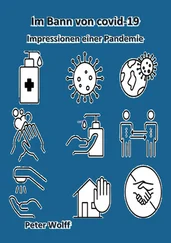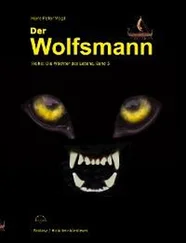Peter Abrahams - Crying Wolf
Здесь есть возможность читать онлайн «Peter Abrahams - Crying Wolf» весь текст электронной книги совершенно бесплатно (целиком полную версию без сокращений). В некоторых случаях можно слушать аудио, скачать через торрент в формате fb2 и присутствует краткое содержание. Жанр: Триллер, на английском языке. Описание произведения, (предисловие) а так же отзывы посетителей доступны на портале библиотеки ЛибКат.
- Название:Crying Wolf
- Автор:
- Жанр:
- Год:неизвестен
- ISBN:нет данных
- Рейтинг книги:3 / 5. Голосов: 1
-
Избранное:Добавить в избранное
- Отзывы:
-
Ваша оценка:
- 60
- 1
- 2
- 3
- 4
- 5
Crying Wolf: краткое содержание, описание и аннотация
Предлагаем к чтению аннотацию, описание, краткое содержание или предисловие (зависит от того, что написал сам автор книги «Crying Wolf»). Если вы не нашли необходимую информацию о книге — напишите в комментариях, мы постараемся отыскать её.
Crying Wolf — читать онлайн бесплатно полную книгу (весь текст) целиком
Ниже представлен текст книги, разбитый по страницам. Система сохранения места последней прочитанной страницы, позволяет с удобством читать онлайн бесплатно книгу «Crying Wolf», без необходимости каждый раз заново искать на чём Вы остановились. Поставьте закладку, и сможете в любой момент перейти на страницу, на которой закончили чтение.
Интервал:
Закладка:
“Better than what?” said Nat.
“ Playboy, ” said Izzie. And to Grace: “What’s the pub date?”
Grace turned to the front of the book: Mon Jardin, published by Editions Bleues in 1919. She leafed through again, finding a few more illustrations, all featuring the mustached man with different women. “Remind you of anyone?” she said.
“Not funny,” said Izzie.
And Nat knew they were talking about Paolo. He also wondered whether on their little journey under Inverness they would keep unearthing porn. He was about to ask if anyone knew the year the college had gone coed when Izzie said, “What’s that?”
“What’s what?”
“Shh.”
They listened, heard nothing.
“I thought I heard something.”
But there was nothing to hear except the candle flame sizzling in a pool of wax. “I didn’t hear anything,” Grace said. “And I’ve got better hearing.”
“Is that even possible?” Nat said.
“She does,” said Izzie.
“How do you know?”
“We know,” Grace said, closing Mon Jardin and putting it on the table. She moved toward the nearest wall, ran her hand over the paneling. The light shone on an ornate picture frame. They examined the painting, a nude bathing in a stream. Even in the poor light, Nat could see it wasn’t very good; compared to the Renoir, not worth looking at. There were other paintings, much the same.
They came to a leather-padded door studded with brass. Grace opened it. On the other side, a much bigger room, full of shadows.
“It’s like that club,” Izzie said.
“Except more lively,” said Grace. Izzie laughed.
“What club?” said Nat.
“Some old-farts club in New York we had to go to once. Just like this, the furniture, the rugs, the paintings, everything. Except for dust.”
“And the spiderwebs.”
Nat walked into one at that moment; it clung to his eyelashes. He wiped it away, and as he did noticed Greek writing high on one wall-he knew some of the letters from math-painted in gold.
“Were there fraternities here?”
“Something like that,” said Grace. “Didn’t Leo mention it?”
“They kicked them out,” Izzie said. She was opening a glass cabinet full of bottles. “During Prohibition.”
Grace held the candle near the bottles, dust-free in the cabinet: scotch, bourbon, gin, rum, cognac, Armagnac, many still sealed. “This looks good,” she said, taking out a heavy, square bottle: Bas Armagnac, Domaine Boingneres, 1913. She chipped off the wax seal, found a tarnished silver corkscrew on the top shelf, drew the cork. The scent reached Nat a moment later and grew and grew: a heady smell, fiery, sweet, strange; as though France, which he’d never seen, and a long-ago time, when he’d never lived, could be kept in a bottle.
Grace tilted it to her lips, drank. “Ah,” she said, and passed it to Izzie. Then to Nat. He took a sip and decided not to romanticize too much. It was just booze, after all, the very best quality, but just booze. Then the aftertaste hit him and he changed his mind again: yes, France and a long-ago time, in a bottle. He took another drink.
“He likes it,” Izzie said. Nat saw she was watching him closely.
“What else does he like?” said Grace.
The girls looked at each other in silence, their expressions beyond his power of interpretation. But an awkward moment, certainly. Was this the time to bring everything into the open? But what was everything? He and Izzie hadn’t been together alone for more than a few minutes since that one time on the beach at Aubrey’s Cay. More guests had arrived the next day, and Nat had had to share his room with a banker from Singapore. And Grace had always been around. But the biggest impediment was this need for secrecy. It was almost as though that in pretending nothing was happening between them, they were making it reality. Maybe nothing was happening: there was lots of hooking up at Inverness, or at least some, that neither party intended to repeat, if not before it happened, then after. Were he and Izzie like that? And what about Patti? Nat realized he had to do some clear thinking, but down here in this strange place, that wasn’t easy. He found himself taking another drink.
“Hey,” said Grace, “my turn.”
The bottle went round again.
“What’s this?” Izzie said.
“A record player,” Nat said. He’d seen one of these before, probably at a lawn sale. Opening the top, he found a record on the turntable. Victor, read the label: Caro Nome (Rigoletto-G. Verdi), sung by Amelita Galli-Curci.
“Turn it on,” Grace said.
Nat wound a crank at the back, moved a switch beside the turntable. The record began to spin. He lowered the needle onto it.
A little musical intro, almost lost in the fuzziness and scratchiness of the recording, and then came a voice, high, light, penetrating, strange, that made Nat forget about the recording quality. If anything, it made it better. The room, the drink, the music: all from a long-ago time. He’d heard of Verdi, was pretty sure that Rigoletto was an opera, but otherwise knew nothing, had no idea what the song was about, couldn’t understand a word. Still, he stood motionless until it was over.
“Play it again,” Izzie said.
“Isn’t there anything else?” said Grace.
Nat checked a compartment at the base of the player, found a bill from a record store in Albany for $4.45, dated October 6, 1919, and more records, a few by Caruso, the others by singers he’d never heard of. They played them all, Nat operating the machine while Grace and Izzie sat in high-backed purple chairs they dusted off and drew up. The candle burned down, the bottle went around and around until it was empty.
“Time travel happens,” Izzie said.
“Whenever we want,” said Grace, “if we keep this our little secret.”
“But what’s it all about?” Nat said. “No one’s been here in eighty years.”
“How do you know that?”
“The booze would be gone. The question is, who left it like this, and why?”
“Maybe there was an earthquake or something,” Izzie said.
“In New England?” Grace said.
“Possible, isn’t it, Nat?”
“Who cares?” said Grace before he could answer; a good thing because he didn’t know. “The point is we’ve made an amazing discovery.”
Nat found himself nodding in agreement. He didn’t know exactly what the discovery was, or its implications, but he knew she was right.
“Let’s try another bottle,” Grace said.
They tried another bottle, found a few more candles, lit them, put “Caro Nome” back on the turntable, explored. There were no other rooms, and just one other door, directly under the Greek writing. They opened it, saw a stone staircase, followed it up ten steps-Nat counted them for some reason-came to another leather-padded door with brass studs. “This is so much fun,” Grace said, turning the knob, “like one of those interactive-theater evenings, only for smart people.”
The leather-padded brass-studded door opened onto a brick wall.
Izzie did something then that made an indelible impression in Nat’s memory. She gave the wall a push with the fingers of one hand, just a little push, as though it were a prop that would topple at the slightest touch. The bricks were real; it didn’t.
There, at the top of the stone stairs, the bottle went around again. Grande Champagne Cognac, Berry Bros. amp; Rudd, 1908. Nat, trying to remember what furniture he’d seen, building a mental tower that would allow them to climb out of the hole in the bedroom ceiling, realized he was a little drunk.
Grace said: “I could get on your shoulders and Izzie could get on mine.”
“That’s not as easy at it sounds,” Nat said.
Читать дальшеИнтервал:
Закладка:
Похожие книги на «Crying Wolf»
Представляем Вашему вниманию похожие книги на «Crying Wolf» списком для выбора. Мы отобрали схожую по названию и смыслу литературу в надежде предоставить читателям больше вариантов отыскать новые, интересные, ещё непрочитанные произведения.
Обсуждение, отзывы о книге «Crying Wolf» и просто собственные мнения читателей. Оставьте ваши комментарии, напишите, что Вы думаете о произведении, его смысле или главных героях. Укажите что конкретно понравилось, а что нет, и почему Вы так считаете.












